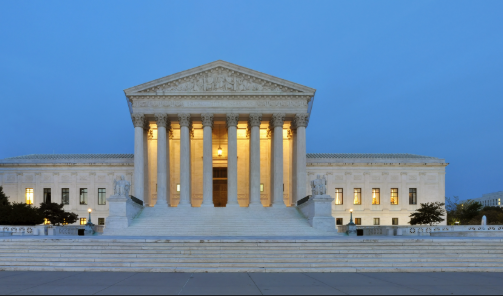In a major decision, the U.S. Supreme Court refused to enter a Republican-led legal fight against Pennsylvania’s provisional ballot laws, upholding a state court ruling that will allow voters whose mail-in ballots are discarded due to minor errors to still have their votes counted through provisional ballots. The ruling, handed down on June 6, 2025, is the latest installment in a series of ongoing court fights over election administration in the critical battleground state.
The controversy revolves around Pennsylvania’s mail-in voting practices, where voters must insert their ballot into a secrecy envelope before putting it in an outer return envelope. If a voter omits the secrecy envelope—leaving a so-called “naked ballot”—the ballot is usually rejected. But in October 2024, the Pennsylvania Supreme Court held that voters whose mail-in ballots were rejected on these grounds must also be permitted to vote provisional ballots on Election Day to prevent disenfranchisement.
The Republican National Committee (RNC) and the Pennsylvania GOP appealed against this ruling, contending that the state court acted outside its jurisdiction by changing election rules established by the legislature, contrary to the U.S. Constitution’s Elections Clause. They wanted to prevent such provisional ballots from being counted, saying it could cause voter confusion and possible fraud.
The Supreme Court’s decline to hear the case leaves in place the Pennsylvania Supreme Court’s decision, enabling voters to fix mistakes on their mail-in ballots by voting provisional ballots. The ruling came as a shock, as the Court had originally intended to issue its order on June 9, but the software glitch leaked the news early on June 6.
The Court did not give a reason for its ruling, as is usual in orders on emergency appeals.
Justice Samuel Alito, though, joined by Justices Clarence Thomas and Neil Gorsuch, made a short statement acknowledging the significance of the case but concurring with the Republicans’ request being denied. Alito observed that the state court decision impacted only two voters in a previous election directly and that enjoining it would not stop other counties from adopting the provisional ballot rule. ## Wider Implications for Election Law
Republicans have increasingly leaned on the “independent state legislature” (ISL) theory, which holds that legislatures essentially control federal election rules under the Constitution.
But the Supreme Court spurned the most radical iteration of that theory in its 2023 Moore v. Harper ruling, but did not rule out the possibility of future challenges if state courts are perceived as overreaching. The RNC had hoped that the Court would take this case as an opportunity to define to what extent state courts can interpret election laws. T
heir petition contended that the Pennsylvania Supreme Court “usurped” legislative power by requiring provisional ballots, an action they contended could impact “tens of thousands of votes” in future elections. The Court’s decline to hear the appeal, however, indicates a hesitance to reopen the issue so shortly after Moore
Democrats and voting rights activists celebrated the ruling as a victory for voter access. The Pennsylvania Democratic Party had encouraged the Supreme Court to leave the case alone, contending that provisional ballots are a bulwark against disenfranchisement for voters who make errors.
Republicans were disappointed, meanwhile, characterizing the decision as another instance of courts undermining election integrity. The RNC had cautioned that making provision for provisional ballots in such a situation could produce “chaos“ in close elections, especially in a swing state like Pennsylvania, which has determined several recent presidential elections by margins of just a few thousand votes.
This is one of several court challenges to Pennsylvania’s election statutes. A federal judge invalidated the state requirement that mail-in ballots bear a handwritten date on the outside of the envelope, deeming it an unjustified burden that disenfranchises voters. The Supreme Court eventually refused to hear that case, allowing the lower court ruling to stand.
These decisions point to the conflict between stringent election laws and access by voters—one that will probably persist as Pennsylvania continues to be a crucial state in federal politics.
The Supreme Court’s refusal to hear the Republican appeal serves to reinforce the judiciary’s reluctance to enter into state election controversies, especially in the aftermath of Moore v. Harper.
Though the ruling preserves the status quo for the time being, the larger legal and political struggles over election administration are far from resolved.
As the 2026 midterms and 2028 presidential election near, Pennsylvania’s voting regulations—and the courts’ role in interpreting them—will continue to be a central issue in the struggle over democracy, access, and integrity in U.S. elections.
Keep Reading Questiqa.US for more news.







Average Rating